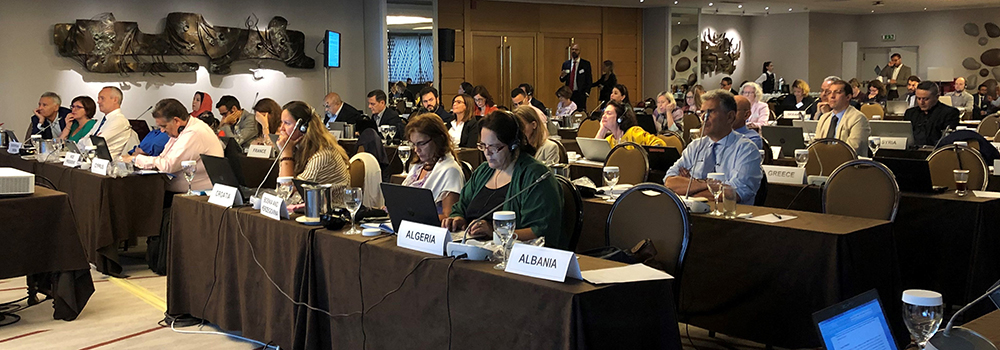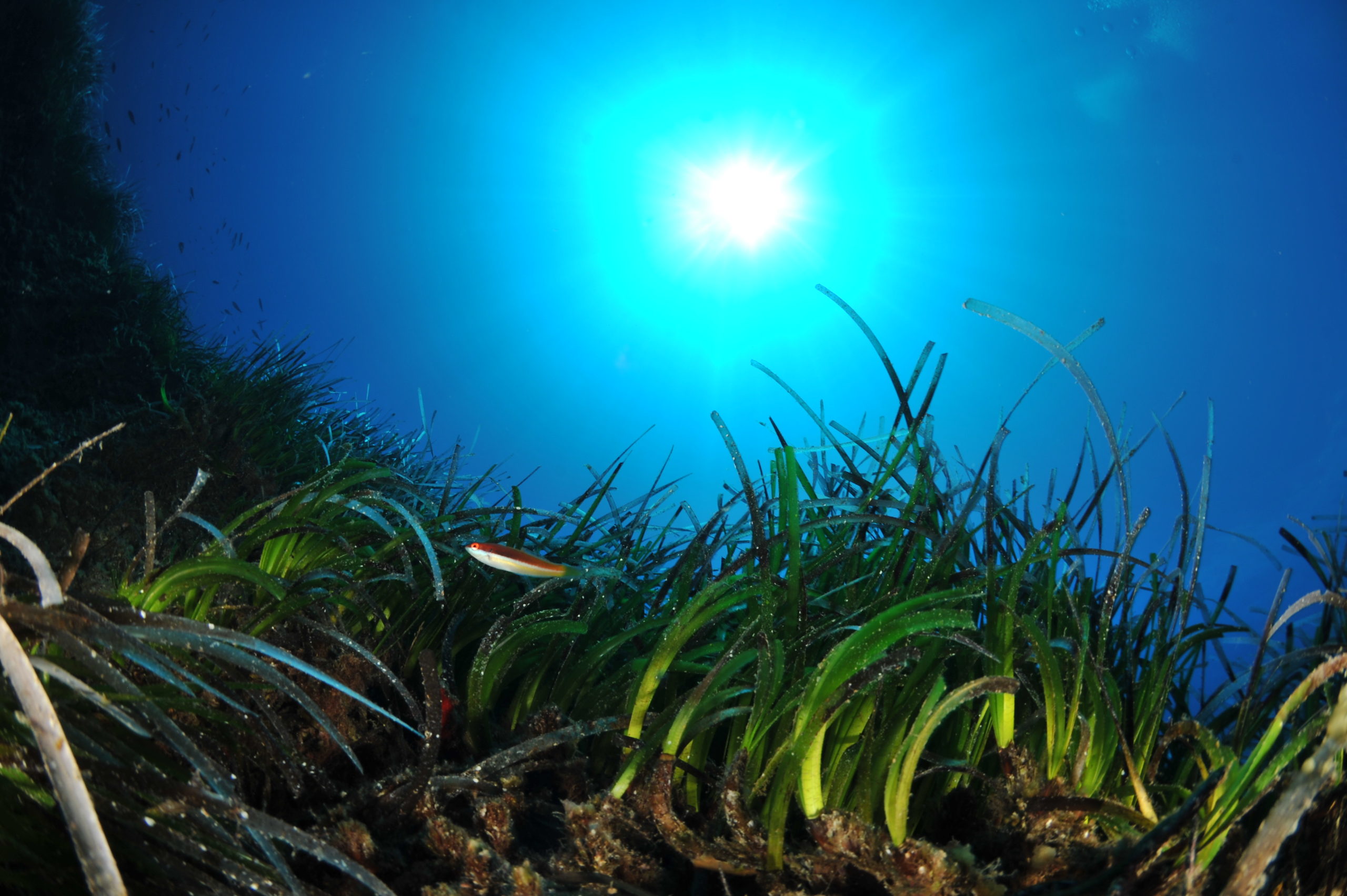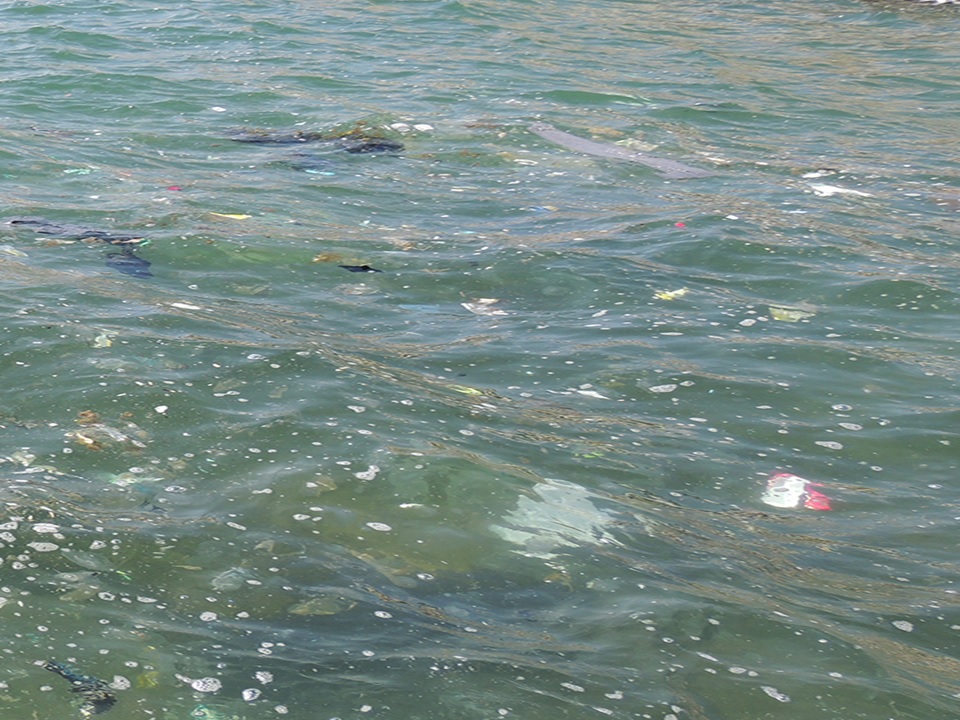(vía UNEP/MAP)
Athens, 13 September 2019 – Focal Points of the United Nations Environment Programme/Mediterranean Action Plan (UNEP/MAP) met in Athens on 10-13 September 2019 to examine the progress on activities carried out during the 2018-2019 biennium, the Programme of Work for the next two years (2019-2020) and several draft decisions to be submitted for adoption to the 21st Meeting of the Contracting Parties to the Barcelona Convention (COP21, 2-5 December 2019, Naples, Italy).
Most of the Contracting Parties (21 Mediterranean States and the European Union) were represented at the four-day Focal Points meeting, which is part of the intergovernmental process coordinated by UNEP/MAP under the Barcelona Convention. Focal Points for the Contracting Parties meet every two years to examine technical and financial aspects of draft decisions prior to their submission for adoption by the COP, the supreme governing body of the Convention. Partners of UNEP/MAP, including non-governmental organizations, United Nations bodies, specialized agencies, convention secretariats and intergovernmental organizations attend the meeting as observers.
The UNEP/MAP Focal Points meeting was opened on 10 September 2019 by Ms. Klodiana Marika of Albania, President of the Bureau of the Contracting Parties to the Barcelona Convention, Mr. Gaetano Leone, Coordinator of the Mediterranean Action Plan and Mr. Konstantin Aravossis, Secretary General for Natural Environment and Water within the Greek Ministry of Environment and Energy. In his statement, Mr. Leone welcomed the continued support of the Contracting Parties to the implementation of the UNEP/MAP medium-term strategy against a background of global environmental degradation, to which the Mediterranean region is not immune.
“Immediate and concerted action is required, particularly with a view to implementing Sustainable Development Goal 14 on Life below water”, observed Mr. Leone who also underscored the relevance of the themes discussed at the meeting to the global environmental agenda, notably the 2019 Climate Action Summit, the forthcoming Santiago Climate Change Conference, the United Nations Decade of Ocean Science for Sustainable Development (2021–2030) and ongoing preparations for the adoption of a post-2020 Global Biodiversity Framework. “The MAP-Barcelona Convention system’s mandate has never been more relevant”, he concluded.
During four days of deliberations (10-13 September 2019), MAP Focal Points examined a host of draft decisions pertaining to pollution prevention and reduction; marine biodiversity and the Blue Economy in the Mediterranean region, including:
- six new regional plans to reduce or prevent marine pollution from land-based sources;
- new standards and guidelines to curb pollution under three Protocols of the Barcelona Convention addressing dumping, offshore and land-based sources;
- guidelines on Adopt-a-Beach activities aimed at curbing marine litter and on phasing out single-use plastic bags;
- common guidelines and standards pertaining to the disposal of oil and oily mixtures: the use and disposal of drilling fluids and cuttings and special restrictions and conditions for Specially Protected Areas (SPA) within the framework of the Mediterranean Offshore Action Plan;
- a set of regional measures aimed at supporting the development of green and circular businesses and stimulating demand for sustainable products;
- a mid-term evaluation of the Mediterranean Strategy for Sustainable Development (2016–2025) and of the regional Action Plan on Sustainable Consumption and Production in the Mediterranean;
- environmental assessments in the Mediterranean, including a preliminary assessment of risks associated to climate and environmental changes in the Mediterranean Region;
- a common regional framework for Integrated Coastal Zone Management (ICZM) in line with the ICZM Protocol of the Barcelona Convention;
- identification and conservation of Sites of Particular Ecological Interest in the Mediterranean, including Specially Protected Areas of Mediterranean Importance (SPAMI);
- the evaluation of the progress made and challenges encountered by Mediterranean countries in the implementation of Aichi Target 11 under the UN Convention on Biodiversity (By 2020, at least 17 per cent of terrestrial and inland water areas and 10 per cent of coastal and marine areas, especially areas of particular importance for biodiversity and ecosystem services, are conserved through effectively and equitably managed, ecologically representative and well-connected systems of protected areas and other effective area-based conservation measures, and integrated into the wider landscape and seascape);
- the Strategic Action Programme for the conservation of Biological Diversity (SAP BIO) in the Mediterranean Region; the strategy on Monk Seal; Action Plans concerning Marine Turtles, Cartilaginous Fishes and Marine Vegetation; and the Classification of Benthic Marine Habitat Types for the Mediterranean Region and Reference List of Marine and Coastal Habitat Types in the Mediterranean;
- updated guidelines regulating the placement of artificial reefs at sea.
In addition, the Focal Points of UNEP/MAP discussed a draft road map for the possible designation of the Mediterranean Sea as an Emission Control Area (ECA) for Sulphur Oxides (SOx) under Annex VI of the International Convention for the Prevention of Pollution from Ships (MARPOL). Curbing SOx emissions from ship movements, which often occur close to the densely populated coasts of the Mediterranean countries, will result in significant health benefits.
The UNEP/MAP strategic orientations were also in focus at the meeting as Focal Points discussed a roadmap for the preparation of the Medium-Term Strategy (2022-2027). The process will be driven by the Contracting Parties and will involve consultations with stakeholders.
In the course of 2019, several thematic intergovernmental consultations took place under the auspices of UNEP/MAP to prepare the draft decisions that were examined by the Focal Points meeting, thus paving the way for COP21.
In addition to considering the draft decisions for adoption, COP21 (Naples, Italy, 2-5 December 2019) will host ministerial-level discussions with the aim of highlighting linkages between global processes and regional developments in the Mediterranean. The UN Secretary-General’s Envoy for the Ocean, H.E. Mr. Peter Thomson, and other distinguished guests are expected to take part in the high-level session.
COP21 will mark an important milestone in the Mediterranean environmental governance process that UNEP/MAP continues to successfully coordinate despite disparities in socio-economic contexts and capacities among the Contracting Parties to the Barcelona Convention.
For more information, please contact:
Jihed Ghannem, Public Information Officer, UNEP/MAP – Barcelona Convention Secretariat ghannem[at]un.org


